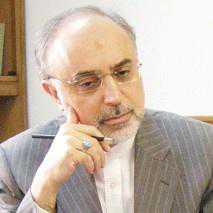Tribuna
October 29, 2009
Fortunately, Russia has powerful allies in Europe nowadays
Author: Giulietto Chiesa
SOME EUROPEAN COUNTRIES HAVE THE PRESENCE OF MIND TO DISREGARD WASHINGTON’S ORDERS IN THE MATTER OF ENERGY COOPERATION WITH RUSSIA
As soon as Nord Stream negotiated all bureaucratic and
technological obstacles, Europe and the United States initiated
debates or, rather, mounted a campaign aiming to circumvent the
whole project. It was then that Premier Vladimir Putin organized
informal meetings with his Italian counterpart Silvio Berlusconi
and Gerhard Schroeder of Germany.
Nord Stream is the largest project Moscow designed in years.
It is a gas pipeline across the Baltic Sea to Germany that will
spare Russia inconveniences of transit via Ukraine. Victor
Yuschenko’s reign made the situation absolutely intolerable. The
so called Orange Revolution put Kiev under Brussels’ and
Washington’s protective wing and set it on a course into NATO via
the European Union. In other words, it fomented a deliberate
confrontation with Moscow. Why would Russia continue to try and
appease Kiev? Past friendship is kaput. Besides, not even all of
Europe is prepared to put up with the Ukrainian blackmailers. That
their methods lack finesse is putting it mildly. Whenever gas
bound for Europe disappears somewhere in Ukraine, Moscow turns the
valve. As a result, both Kiev and Europe remain without gas. Sure,
it costs Russia too but what really counts is that Europe is
swindled out of one fourth of the gas it needs.
Moscow’s pragmatic policy secured it another prospective
buyer, one who desperately needs all energy it can lay its hands
on. This new customer can well reroute the channels still going to
the West in its own direction. The matter concerns China, of
course. Gas pipelines to China are already built.
In other words, Putin has found someone interested and
prepared to pay. Nord Stream in the meantime costs more than 10
billion euros. Germany was the first country where the Kremlin’s
voice was finally heard. Ex-Chancellor Schroeder became the head
of the project. Frau Merkel backed him. Sarkozy in France wants
his slice of the pie too. There is South Stream as well, an
alternative to Nabucco. South Stream will send Russian gas via the
Black Sea to Bulgaria, Balkans, Greece, Italy. Putin’s plans found
enthusiastic supporters in official Rome – Berlusconi and Eni. So,
there is a new situation to be taken into account. It is in
Moscow’s power now to deliver gas, Russian and Central Asian, to
Europe without fearing that Ukraine will pull something off.
Needless to say, official Washington does not take to all
these developments. Pretty well forgotten, Jimmy Carter’s National
Security Advisor Zbigniew Brzezinski raised his voice again.
Washington plainly announced that Moscow was out to divide West
and East Europe. Its satellites joined the critical chorus.
Estonia began complaining that the Baltic states had been
“ignored”. A bunch of exes (former heads of states and
governments) condemned Moscow for the intention “to restore its
sphere of influence”. All projects promoted by Moscow seek to
undermine economic stability of East Europe – that’s the most
popular tune in East European capitals, these days. The Kremlin is
condemned for what is called “energy blackmail”.
But why wouldn’t Brussels itself rearrange gas in accordance
with market realities? Russia will keep exporting gas in any
event. East Europeans claim that Moscow has planned some foul play
and that demands will be put forth soon enough. Sikorski in Warsaw
went so far as to equate Nord Stream with the Molotov-Ribbentrop
Pact. (To listen to these guys, construction of gas pipelines must
be thwarted no matter what.) European allies sing hosannah to
Nabucco, a project lobbied by the United States. Nabucco is about
giving Russia the mitten and having the Central Asian work for the
West. Besides, Nabucco is to be built across Turkey and Georgia.
By and large, that’s a great plan, but… but Putin and Medvedev
have already struck back. They have powerful (not to say decisive)
allies in Europe now.
Some events of considerable magnitude and importance are
bound to follow. Since Putin, Berlusconi, and Schroeder decided to
meet informally in St.Petersburg, it can only mean that a
counteroffensive is about to be mounted.
Translated by Aleksei Ignatkin





